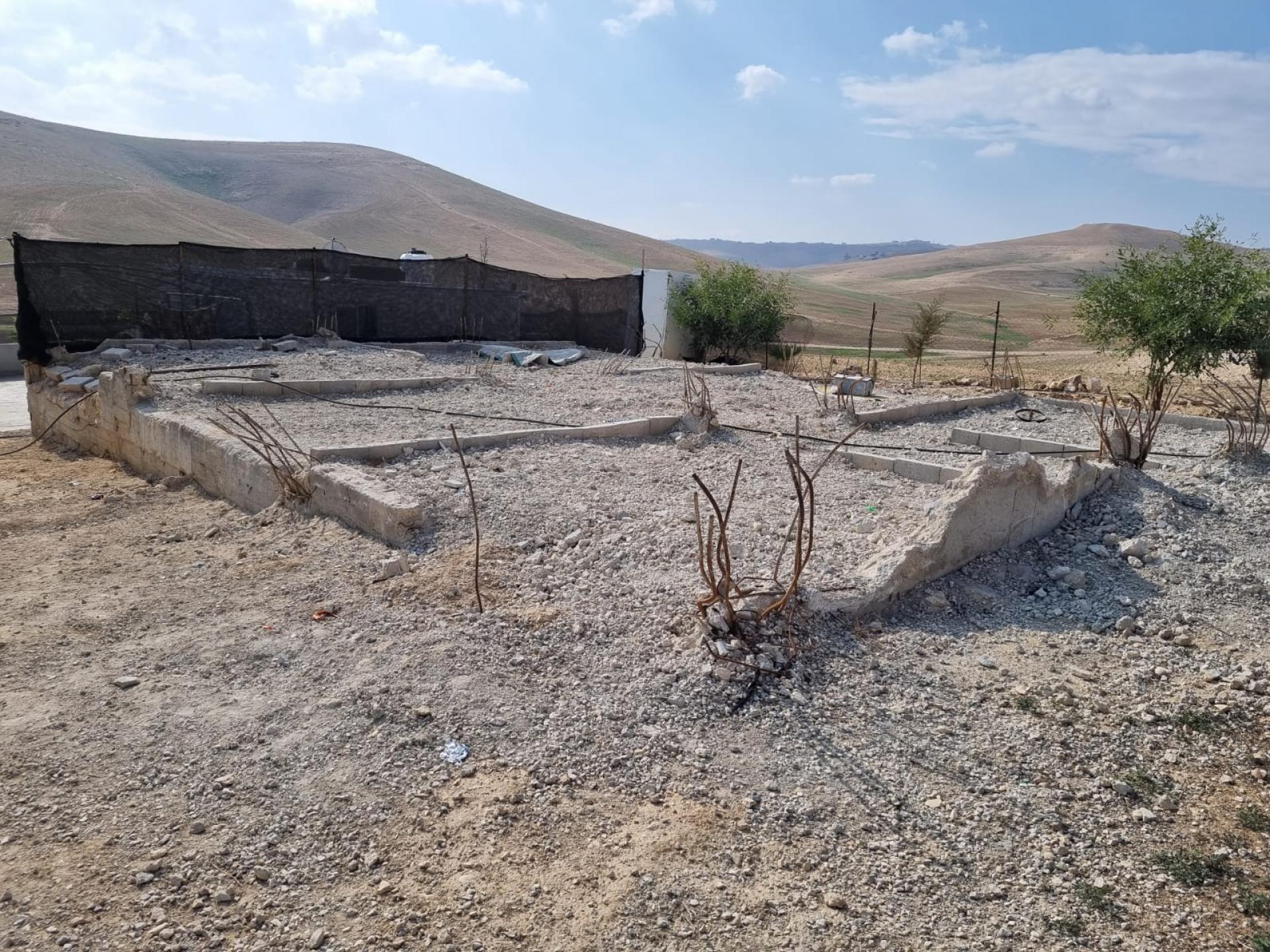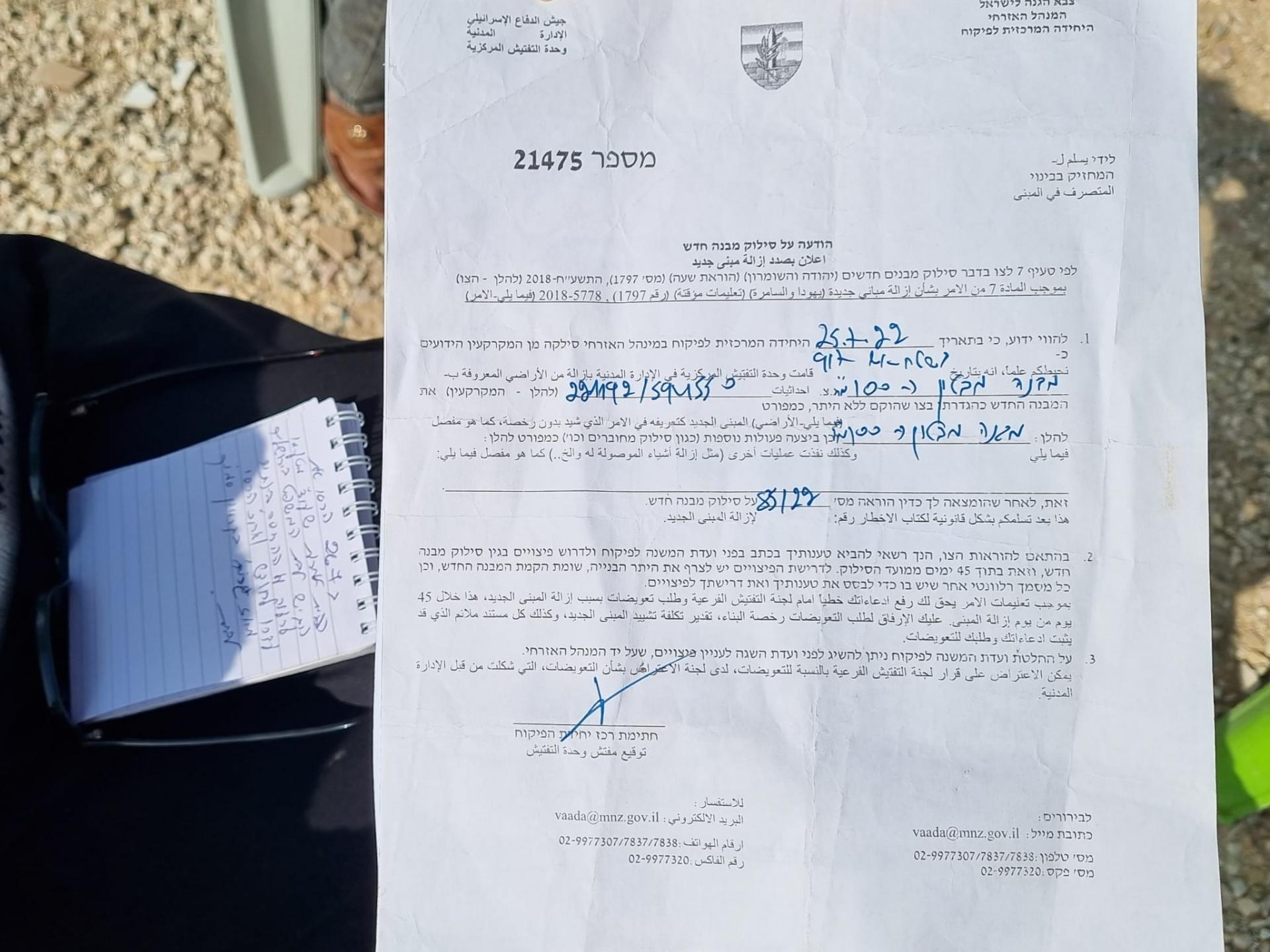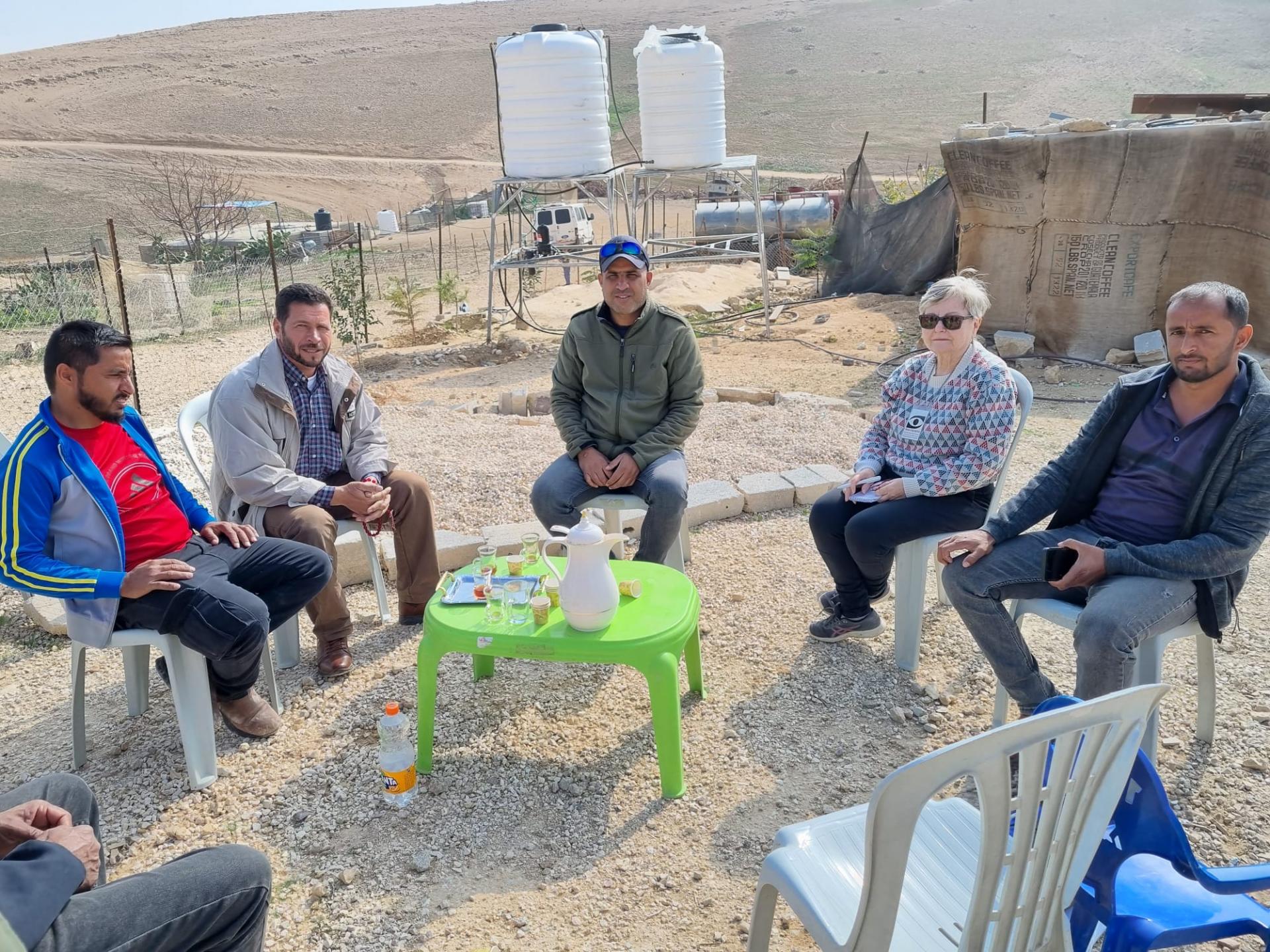Umm Gusa - ahouse demolished inspite of a permit stating the opposite
We passed the Meitar checkpoint and turned to Route 60. The army post located nearby, on the right side, is not manned.
About a kilometre before Zanota, on the left, a yellow barrier blocks the possibility of going down to the Havat Or and Havat Shabtai settlement areas.
It can be seen that road paving works are being carried out near the farm.
At Meiter Junction, on Route 317, near the South Mount Hebron Regional Council, several large concrete blocks were placed, apparently in preparation for a new post.
In front of the entrance to At –Tuwani, at the entrance to Al Carmel, there are entry and exit barriers for vehicles, which makes the residents of the area have no choice but to walk back and forth. Some of them come from the surrounding villages, and have to walk many kilometres. Sometimes cars or taxis are waiting for them on the other side.
We gather Nasser Adra in At-Tuwani on our way to Umm Gusa, a village of 80 families, belonging to Umm Daraj.
Nasser called out attention to his friend Jamil, who is ploughing the land he owns.
A number of volunteers and a van and a number of soldiers by his side, guarding him, lest settlers come to remove him. He was given 3 days to do the ploughing.
At Umm Gosa, we are welcomed by Najah Muhammad Taimat. Originally the residents of the village were Bedouins who were expelled in 1948, the War of Liberation, from the area of Tel Arad and Beit Shemesh.
Since October 7th, it is not possible to work in Israel, therefore the men in the family have been at home since then. Some of them worked in kibbutzim surrounding Gaza and luckily for them on that terrible Shabbat, they were not present at work. The family owns an olive grove and areas that they cultivate and sow wheat and barley.
Najah speaks Hebrew, 30 years old, says that about a year ago he started building a house for his family. When the Civil Administration found out about it, Ilan, known to us from many cases of house demolitions, told Najah that he had permission to build. Despite this, 3 months later, Ilan arrived with a demolition order in his hand, to be carried out in 96 hours. Najah filed an appeal through a lawyer to the court in Jerusalem. After a month, the army destroyed the house with a bulldozer. Since then, the family has been living in a trailer next to the wreck site.
found out about it, Ilan, known to us from many cases of house demolitions, told Najah that he had permission to build. Despite this, 3 months later, Ilan arrived with a demolition order in his hand, to be carried out in 96 hours. Najah filed an appeal through a lawyer to the court in Jerusalem. After a month, the army destroyed the house with a bulldozer. Since then, the family has been living in a trailer next to the wreck site.
The story did not end there.
After they destroyed the house, it turned out that there was a mistake and in fact there is a permit. I asked again and clarified the details, because it is difficult to grasp such a thing. In April 2023, Najah submitted a request for compensation, after an appraiser's examination, who estimated the compensation at NIS 237,000.
I photographed a number of documents, regarding this delusional case. It is assumed that the treatment will last for years.
I remembered that on a previous trip to the area (when there was a demolition order for the school of Umm Gusa, and the demolition was not carried out) Nasser Adra talked about a settler named Yoav, who settled a year ago, on a hill where a police station was located during the British Mandate, one of 6 stations. The settler from Susiya has put up a sign with the name of the place, Mitzpeh Umm Daraj, and threatens with a long weapon anyone who tries to reach his outpost.
To show presence and control, he makes a daily round with his ATV on the road around Umm Gusa.
We will continue to follow the family we visited.
On our way back, surprise: At the Umm al Kheir-Carmel intersection, the settler who owns the nearby farm, opposite Zvidin, Shimon Atia with his herd, waves to us in peace (he probably thought we were settlers).
Another surprise a few kilometres later, the settler Issachar Man, dressed in army clothes and holding a long weapon, the owner of the farm next to Umm al Kheir, the man of the vineyards and the winery, he is also seen near the road, next to the sign pointing to the Issachar Man farm.
Nasser Adra says that Issachar is walking around the area, spreading fear with his weapon, especially since the war on October 7, 2023.
There is some change following the involvement of the US and several European countries in the subject of the occupation.
As with any shift, the occupation and apartheid are evident everywhere.



